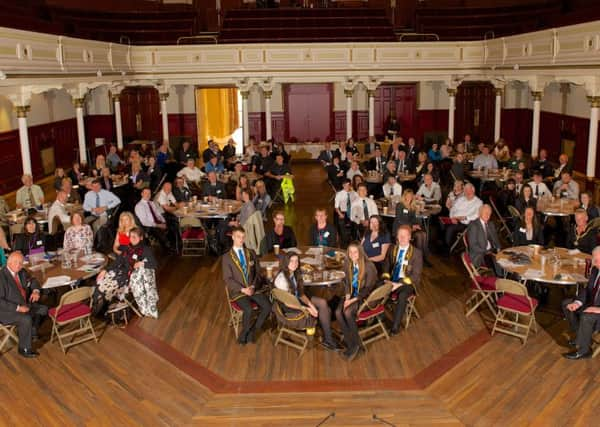Veterans roadshow discusses options for leaving service


And these challenges facing armed forces veterans returning to civilian life were highlighted for three local councils recently.
Veterans Scotland brought a national roadshow to Paisley Town Hall to meet with representatives from East Renfrewshire, Renfrewshire and Inverclyde councils.
Advertisement
Hide AdAdvertisement
Hide AdOver 90 delegates from councils and veterans’ agencies were on hand to discuss the experiences of those leaving the Armed Forces.
East Renfrewshire Provost Alastair Carmichael said: “Adjusting to civilian life can be difficult for veterans and their families.
“It’s important that people working for councils, who provide so many vital services in housing, social work and other areas, understand this.
“Support for veterans is one of the key commitments of East Renfrewshire Council and our colleagues in Renfrewshire and Inverclyde.
Advertisement
Hide AdAdvertisement
Hide Ad“We have a Community Covenant with the armed forces pledging mutual support and we are determined to do all we can to provide practical help and support and make that pledge a reality.”
Lt Col Neil Morrison OBE, Veterans Roadshow project Manager, said: “We know that whether veterans have been ‘in’ for 3 years or 30 years, or ‘out’ for 6 weeks or 6 years, problems will arise and that they could use just that little bit of extra help.
“With over 50 veterans’ organisations in Scotland alone and multiple public and third sector agencies providing support, it can be difficult finding just the right person to help - so the roadshow ensures all these agencies know about each other’s work and can signpost veterans in the right direction.”
Renfrewshire, East Renfrewshire and Inverclyde councils jointly employ a dedicated Veteran Support Advisor, Jane Duncan, with and armed forces background.
Advertisement
Hide AdAdvertisement
Hide AdJane said: “When we use the word ‘veteran’, there’s a common assumption we’re talking about an elderly generation who served in earlier conflicts. But ‘veteran’ describes anyone leaving the Services and, in the majority of cases, we’re talking about young men and women in their late 20s or early 30s who have served for four to six years. We’re also reaching out to reservists because there’s also a common misconception that they don’t need or deserve the same support.
“Often, these young men and women are proud of how they can look after themselves, and reluctant to be seen as asking for a hand-out. But this is help and support they are entitled to, same as anyone else. It’s not about seeking an advantage for those who have served, but making sure that they aren’t disadvantaged.”